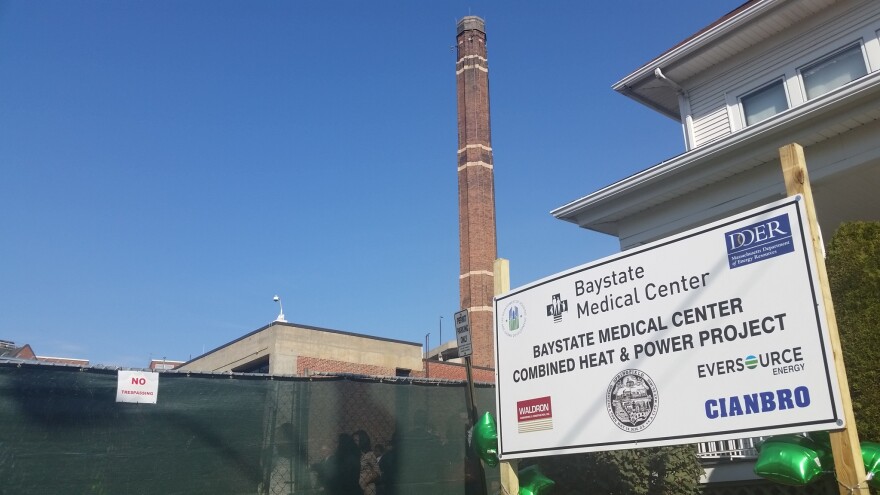A project is under way to ensure that the only top level trauma hospital in western Massachusetts will be able to function in the event a disaster knocks out the power grid for an extended length of time.
Baystate Medical Center can operate its emergency room, neonatal intensive care unit, cardiac intervention center and other healthcare services critical to the region for four days if the power goes out in Springfield.
But once a new $27 million power plant currently under construction at the hospital comes online at the end of next year, Baystate will be able to function independent of the electric grid for 30 days.
Few other hospitals in the country have that capability, according to Baystate Health CEO Dr. Mark Keroack.
" We are a 24/7 operation and we need to have a high degree of security and reliability when it comes to power," said Keroack.
The cogeneration plant will use a natural gas combustion turbine to generate electricity and the steam that comes as a byproduct is used to heat the hospital. The plant will provide the hospital with roughly 80 percent of its electricity usage.
The expected energy cost savings of close to $3 million annually comes at a time when Baystate has been tightening its belt. More than 300 employees were laid off last month due to a round of budget cuts.
Keroack said the timing of the power plant project was driven by the availability of government funds and credits from the local utility company that mean Baystate will need to cover just half the construction costs.
" There are things we need to do just to stay in business and replacing a power plant is an every 50-year decision," Keroack said.
$5 million for the power plant is coming from an almost $18 million grant awarded earlier this year to the city of Springfield by the U.S. Department of Housing and Urban Development for disaster preparedness and resiliency projects.
Springfield was awarded the money in the wake of a string of disasters in 2011 and 2012 including a destructive tornado, a crippling blizzard, and a natural gas explosion.
Mayor Domenic Sarno said a fully-functioning Baystate hospital is critical to the city’s safety.
" God forbid we have another disaster, but if we did, Baystate Medical Center, which is the only level one trauma center in western Massachusetts, stays up and running, " said Sarno.
At a groundbreaking ceremony for the project Wednesday, Congressman Richard Neal said the new power plant highlights America’s increasing energy independence.
" This is a neat project," Neal declared. " When you examine the partners, the ingredients and the role America plays in becoming less dependent on foreign sources of energy and also a reminder of the bridge natural gas provides as we try to move away from coal."
The new plant will replace one that was built in 1930 and used both natural gas and oil as fuels. The cogeneration will increase Baystate’s energy efficiency by roughly 25 percent, according to Sean Gouvin, the hospital’s director of facilities.
" The amount of greenhouse gas reduction we are looking at is the equivalent of taking 3,000 cars off the road each and every day," said Gouvin.
Once the new plant goes online, the old one, with its 25-foot high smoke stack will be relegated to occasional use in the event of an emergency and when the new plant undergoes routine annual maintenance.







